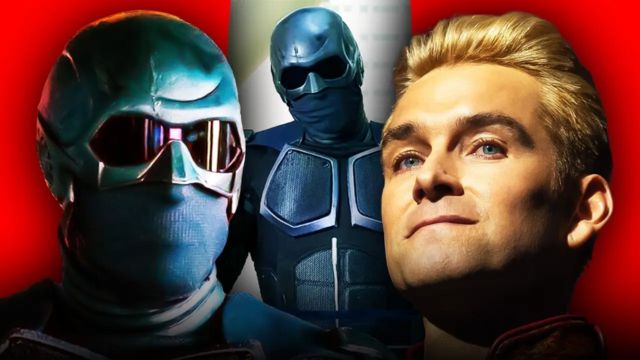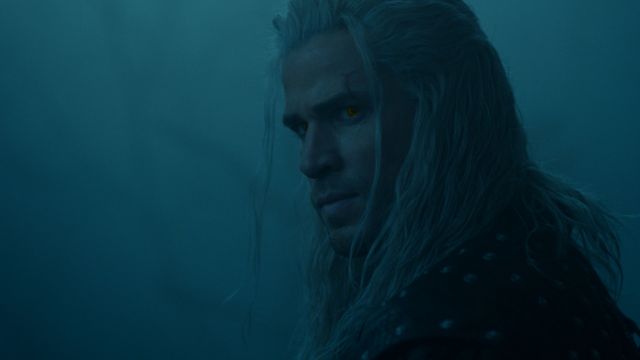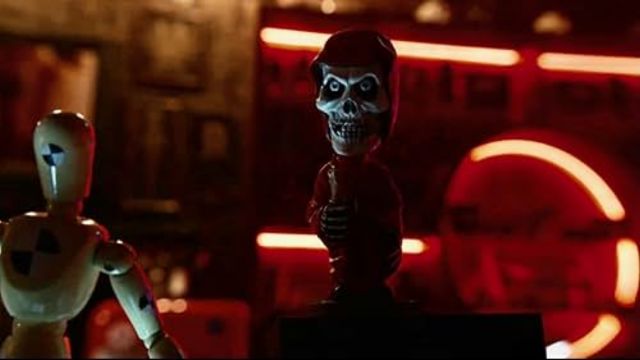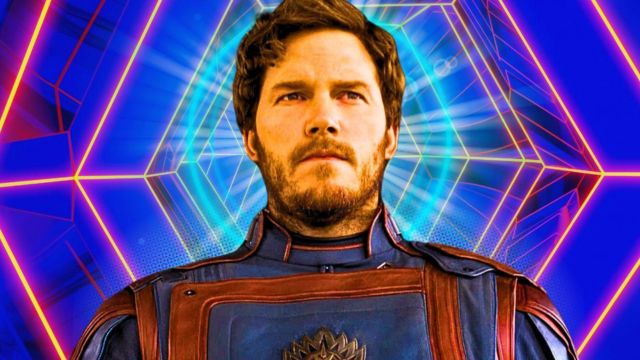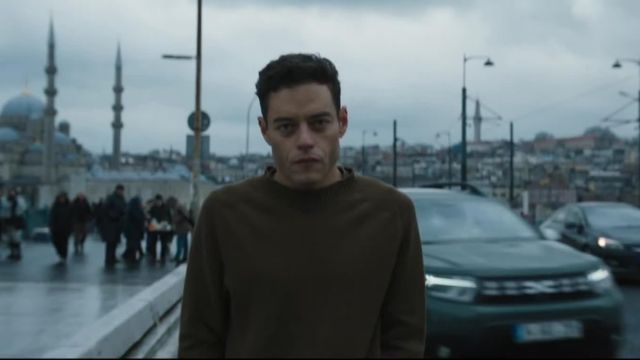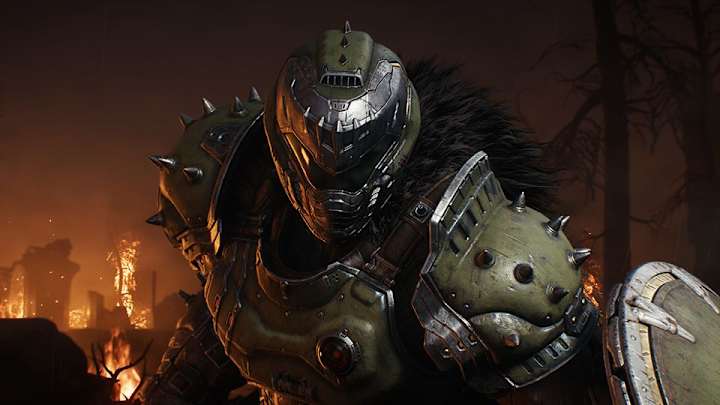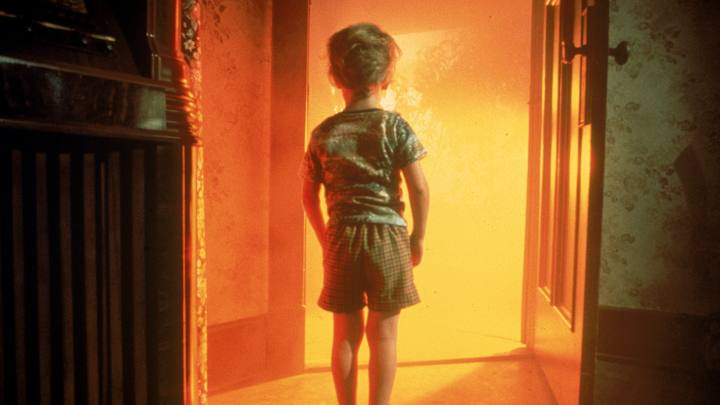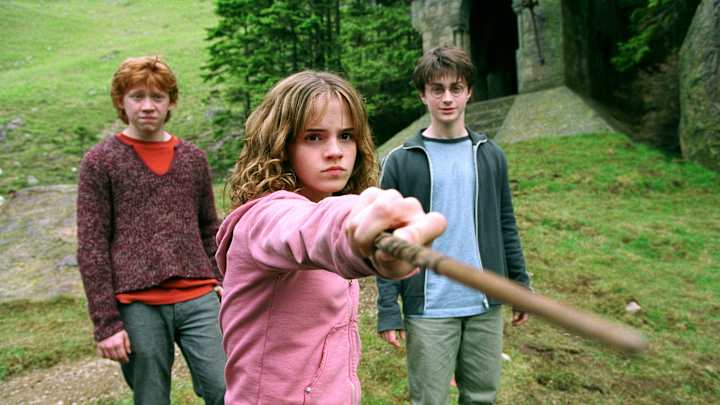From the start, audiences were captivated by the bond between Homelander and Black Noir in The Boys. Homelander’s unpredictable domination and Noir’s quiet demeanor appeared to foster a shared understanding, if not allegiance. However, this delicate equilibrium was upset in the last moments of Season 3 when Homelander killed Black Noir without warning. Not only was the event terrible, but it also symbolized a profound betrayal from someone Noir had previously protected, which made it shocking.
This article closely examines the reasons behind Homelander’s murder of Black Noir, the circumstances surrounding it, and how this action relates to the larger issues of The Boys world using evidence.
In The Boys, who was Black Noir?
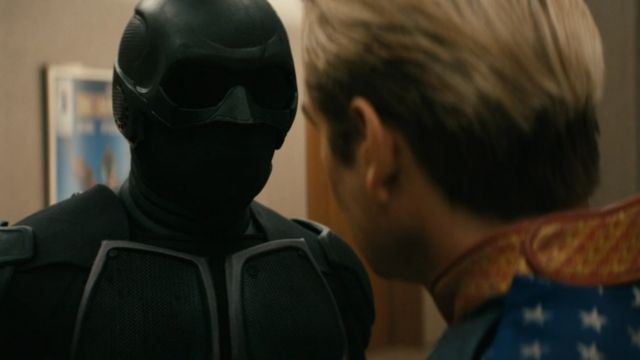
Nathan Mitchell played Black Noir, one of the initial members of The Seven. His total stillness, his ability to move stealthily, and his mask that hid his identity made him special. He was portrayed as an apparently heartless weapon and a devoted enforcer for Vought for the most of the series. But for the first time, his past is examined in Season 3.
It is revealed that Noir was a member of the first superhero organization Payback, which was commanded by Soldier Boy, before turning into a silent masked killer. Noir suffered a horrific beating from Soldier Boy on a mission in Nicaragua in the 1980s, which left him disfigured and with brain damage. Noir became mentally unbalanced as a result of this incident and lost his capacity to talk permanently. Since then, he has kept his face hidden and developed into the silent killer that his admirers have come to know.
The Return of the Soldier Boy: The Tipping Point
The return of Soldier Boy was the primary catalyst for the battle between Homelander and Noir. Noir, who had been traumatized by his previous encounters with the former Payback commander, was alarmed by this alone. The revelation that Soldier Boy was Homelander’s biological father, however, was the real shocker.
This finding caused emotional instability for Homelander, who has always battled with issues of abandonment, lack of parental affection, and a persistent desire for validation. Even worse was the fact that Black Noir had always been aware of this link and had decided to keep it a secret from him.
Eric Kripke, the showrunner of The Boys, claims that this treachery was crucial:
“In every version, Homelander reacts strongly to the revelation that Noir, whom he fully trusted, was aware of his father and concealed it from him.” according to Looper.
Homelander’s Mindset: Control and Paranoia
Understanding Homelander’s psyche is crucial to comprehending the murder. Homelander has severe abandonment trauma and is a narcissist in addition to being a villain. He continuously looks to everyone around him for domination, control, and unwavering loyalty throughout the series.
Any apparent betrayal is viewed as a direct danger, particularly when it comes from someone as close as Black Noir. Despite his commitment and silence, Noir refrained from disclosing a very private aspect of Homelander’s beginnings. Homelander felt alone, defenseless, and exposed as a result of that one decision.
Homelander meets Noir in Season 3 Episode 8 and inquires as to whether he was aware of the truth. Noir doesn’t dispute that. In one of the most gruesome scenes of the season, Homelander brutally murders him, pulling out his guts despite the fact that he doesn’t defend himself.
It was an act of control rather than merely violence. Noir was being punished by Homelander not only for the secret but also for putting someone else’s safety ahead of his own.
Loyalty Is Everything to Homelander
Homelander demands devotion because he needs to feel in control at all times, not because he respects other people. He sees relationships as a transaction in which people are either barriers or resources for him.
Black Noir has always complied with Homelander’s directives and kept quiet. He fell short of Homelander’s expectations in this one case, however, by concealing the truth about Soldier Boy. Even one act of alleged disloyalty can justify execution for someone as unstable as Homelander.
What the Showrunners Intended
Black Noir’s passing served as a narrative device to highlight Homelander’s slide toward totalitarianism. He was part of Vought’s system in the previous seasons. However, Homelander no longer poses as a law-abiding, morally upright person at the conclusion of Season 3. Regardless of how close they were to him, he kills everybody who crosses him.
Actor Nathan Mitchell stated in an Entertainment Weekly interview that Season 3 marks the conclusion of Black Noir’s plot and that Season 4 will feature a “new” version of the character with a different backstory.
Symbolic Meaning of Noir’s Death
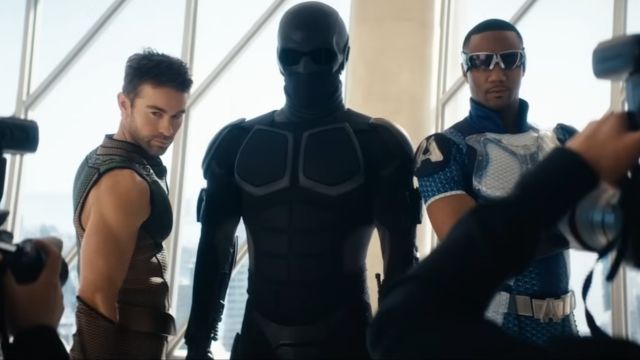
In The Boys’ universe, the murder has symbolic significance as well. Black Noir served as a link between the new Supe-dominated world Homelander wishes to establish and the earlier Vought age (Payback, Soldier Boy, secrets). Homelander is claiming complete authority over The Seven and cutting connections with Vought’s outdated systems by eradicating Noir.
It also highlights the show’s recurrent theme, which is that ultimate power isolates and destroys in addition to corrupting.
What Happens Next?
Noir is gone, and The Seven is nearly destroyed. A-Train and The Deep are at best shaky allies, Queen Maeve is gone, and Starlight has defected. Homelander now controls Vought with little resistance. He is now even more dangerous as a result.
New dynamics for Season 4 are also established by the Season 3 finale:
Vought presents a “new” Black Noir, a masked, silent character played by the same actor but lacking Noir’s past.
The erasure of the genuine Black Noir’s trauma, loyalty, and humanity is a critique of how companies such as Vought prioritize appearance over content.
conclusion
Homelander’s choice to murder Black Noir was the result of years of emotional turmoil, unbridled power, and shattered loyalties; it wasn’t merely a plot twist. For Homelander, Noir’s decision to keep the truth from him was an unforgivable betrayal. The incident demonstrates Homelander’s true derangement as a man who views punishment as necessary and loyalty as ultimate.
This death was more than just another body in the brutal, complicated world of The Boys; it was a stark reminder that Homelander’s anger can reach anybody, even those who were once closest to him.
Stay updated on The Boys universe with in-depth breakdowns, episode insights, and character analyses. Bookmark our Website and never miss a detail about your favorite series. Got a theory or question? Drop it in the comments — let’s decode the chaos together!
